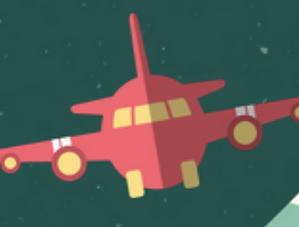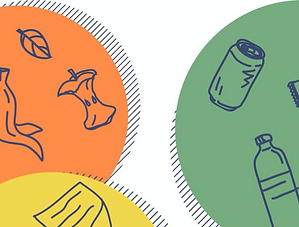Projects: Complete Teacher Guides
The following projects are complete guides, with rationale, lesson-by-lesson planning, materials and implementation suggestions. They have been posted with express permission by the authors. They are available for use by any teachers (click on the images to go to the online links). Please cite complete author names as source of inspiration for any use, whether partial or full.
How can we make positive changes towards climate change?
The telecollaborative project “How can we make positive changes towards Climate Change?” is aimed at students from 12 to 14 years old from an Indian and a Spanish school. The salient purpose of the project is to work and reflect on the global dimension of Climate Change and the different effects that each of the countries taking part on it are suffering.
The world has to know
Climate change and global warming is a reality that has been taking place for a long time and currently is making big changes in the Earth’s structure. Students may feel that they have no relation to something that is happening very far from them but actually it is something that we all suffer from and that we have the power to stop if we make better and more responsible choices. Our main goal in this project is to make them comprehend this phenomenon, understand the responsibility all the citizens have and make others aware in order to change certain attitudes. We want our students to feel part of the world as mature and engaged citizens, raise awareness about climate change and make proposals to improve the actual situation.
CURRENTLY NOT AVAILABLE. SORRY!
Let's do a pop art mission!
This project promotes technology with language learning and collaborative work. The project is about the Pop Art movement with the main objective being that two schools from different parts of the world work together to create a Pop Art magazine (art brochure) that features work done by them.
Learning can take you
This project aims to work with students who are learning English and Spanish. It fosters learning about a new country and travel-related concepts while using English or Spanish as the main language. Both groups help and correct/teach each other interdependently. It is thought to be carried out during 7 sessions of an hour and a half, which implies 6 weeks of length. As a telecollaborative project with students based in different countries, it promotes language exchange and also works with technological tools for educational purposes. Some of the topics chosen to be developed regarding travelling are monuments, traditions, weather, art and geography among others.
Ghostbusters!
The aim of this project is not only to work on linguistic and social science contents, but also to foster students’ cultural awareness. This multi-school project will bring together children from different countries to work together through different disciplines to ‘capture’ ghosts that have escaped from their respective countries. The ghosts are all historical personalities and through collaboration the students will find out about these historical figures, using paintings, music, texts, etc. The students will only be able to capture the ghosts if they work together through engaging and fun Internet tools.
Breaking tales
This project aims to promote intercultural awareness and critical thinking through creative writing. Students from Spain and Africa work together to create storybooks that can be used with younger students learning English as a foreign language (or for improving reading skills in their first language for English speakers). The stories will introduce social and cultural realities of each country and help break stereotypes typically associated with the countries in question.
Gender stereotypes & writing
This project aims to give students the ability to identify and deconstruct gender stereotypes in our society by allowing students to explore literature, their community, and different cultures. Students will learn about gender stereotypes, talk to individuals within their community that break gender stereotypes, learn to identify gender stereotypes and literature and work with other students from another culture to create a new story inspired by a book chosen by the students.
Waster fighters
The project aims to raise students’ awareness regarding waste. We believe that this theme, while ongoing, is still current and we consider it important that learners be able to analyze their actions, as well as those of their schools, in order to take action and propose solutions applicable to their contexts.
Small steps can change the world
The idea from the project arises from two needs, firstly the learning of a foreign language through real communication, and secondly the understanding of a difficult situation which is happening currently and which has an impact on the students’ immediate environment and daily lives; the Syrian refugees crisis.
Social Freedom Fighters
The ultimate aim of this project is to write, in collaboration with a school from the other country, a short story about the reunion of two renowned personalities —Montserrat Roig i Fransitorra and Langston Hughes— in a café. This story will be performed to the younger pupils by means of a theater play. As the project moves forward, the students will get to know each other and will work in collaboration on the tasks that will help them learn all about the work that these two figures (each one local to one of both countries) carried out during their lives.
Let's be journalists
This telecollaborative project was originally planned to be carried out between a school in Catalonia and an American school with 12-13 year old students. The final output of the project will be a collaborative digital newspaper about events that have happened in both countries. At the end of the project, students will be able to write reports in English for different newspaper sections (arts and culture, sports, politics, environment, technology). It is an interdisciplinary project, thus it includes different disciplines such as English (as a Foreign Language in Catalonia), Natural and Social Sciences, ICT and Art. Students will come to understand how newspapers and media work, current events of their countries and at the same time improve their writing skills in their first and second languages. Due to the telecollaborative component, they will also gain intercultural skills.
Sustainable tourism
By doing this project, we want our students to realize about the negative impact tourism has in our communities and analyse them in their own regions. They are supposed to distinguish the main impacts of tourism, such as its environmental, sociocultural and economic consequences. By doing so, we think they will get to possible solutions to those problems, as well as be able to construct causal explanations and contrast information on the same social facts. Moreover, we believe that students will develop their critical thinking, as they have to argue what they think are the impacts of tourism and find possible solutions to different problems and situations.
Let's exchange our legends!
This project aims to make students telecollborate in order to exchange and talk about local legends so that they can then create their own ‘theatre’ productions of each others’ legends. The students use the target language to learn more indepth about their own culture and also about their partners’ traditions, legends and history.
Media advertisement in our society
This project consists on analysing media and advertisements that surround our target groups of students regarding the topic of healthy food. Both groups of students share the same output and all the lessons planned in both projects are focused on working with the same linguistic skills, as well as the content, which includes raising awareness about the influence that media has on society and creating consciousness towards the importance of eating healthy.
Launch a board game
The name of the project arises from the question “how can we create and launch a board game?”. As the title suggests, the aim of the project is to create and launch a board game into the market. However, there is something distinctive which takes it from “a project”, to “THE project”. In this case, children and adults (university business students) work together through asynchronous telecollaboration sessions (written and video recorded), thereby encouraging collaboration between age groups that often do not work together. The youngsters and adults have different roles: the children focus more on arts and crafts , whereas adults are in charge of the business part of launching the product, (commercializing the board game in an appealing way).

















